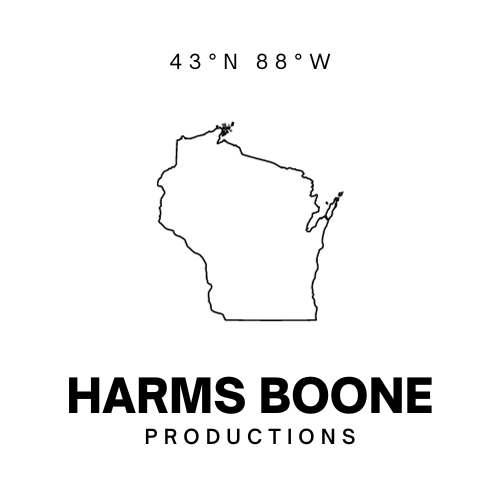I’m a white, cis, hetero male and I work in tech — sorta. That puts me in a pretty established majority. Last year men accounted for 70% of all employees at Twitter. White folks were 59%. 67% of Facebookers are men. 52% are white. 93% are straight. I don’t know what those numbers are where I work and for complicated bureaucratic reasons I don’t fully understand, it might be a while before I do. That said, 18F is the most diverse team I’ve ever worked on but we are far from perfect.
This week, Facebook told the Wall Street Journal that it’s diversity hasn’t improved because there aren’t enough qualified people in “the pipeline.” What makes the news that came out of Facebook this week upsetting is that while we have not given up trying to build a diverse team, it appears one of the largest tech companies has. A statement like this is not only false, it’s dangerous. It’s a sign to all the companies smaller than them that this myth is an acceptable reason to give up.
This is bigger than Facebook. It’s part of a societal problem where minorities are forced, by people in power, to prove themselves worthy of the benefit of the doubt. If you need proof this is the case in tech hiring, read some of the stories being shared by people under the hashtag, #FBNoExcuses. Many of them are mutli-tweet stories and I encourage you to read through all of them.
We will notice a predominance of Black/brown founders, techies, orgs speaking out on the #FBNoExcuses thread giving truth to power.
— Kimberly Bryant (@6Gems) July 15, 2016
I first learned of the article and hashtag when I noticed a tweet from Kaya Thomas, a Code2040 Fellow, who wrote a moving and powerful piece about her experience trying to find a job as a Dartmouth student graduating soon with a degree in computer science. Most salient:
I thought about all the work I’ve put into to get to where I am today and wondered will it even matter when I start my job search in a few months. According to most tech companies, if I can’t pass an algorithmic challenge or if I’m not a “culture fit” I don’t belong.
Look up Thomas, on Twitter or her website, and you’ll see she has a resume any recruiter should find impressive, especially for someone who hasn’t yet graduated. Yet:
I thought WRONG. At the career fair I struggled to have recruiters even take my resume from my HAND.
— Kaya Thomas (@kthomas901) July 16, 2016
There’s really no excuse for behavior like this. I don’t have a computer science degree and my first job in the US was as a software developer. It wasn’t anything like the kind of work being done at Apple, but I was writing the code that powered most of the CFPB’s website — I was one of their contractors. I went into that interview not having a clue what to expect and assuming I wouldn’t get the job because I had so little real programming experience. I’m thankful for the experience but definitely felt like a fraud at times.
Beyond tech, we see this kind of behavior when the press seemingly justifies the killing of a black man because he had been pulled over a lot or because of the firearm he was legally permitted to carry. When Jamar Clark was killed by Minneapolis police, people who look like me accused me of defending a domestic abuser for saying it was wrong to execute him. Domestic abuse is a terrible thing but it doesn’t not make one eligible for the death penalty, particularly in a state where the death penalty was abolished in 1911.
We also see it when people who look like me complain about political correctness or get away with micro-aggressive behavior. People who look like me get to walk through life fairly comfortably. People who look like me can say the most heinous, incendiary things and get nominated to run for president. When there’s even a whif of sharing that comfortability, people who look like me get incense. They see it as a personal attack, taking away their freedom of speech.
What this twisted sect of society that I happen to share some genetic traits with don’t know, and refuse to believe, is the every day lived experiences of minority populations. They refuse to believe that Muslim women in the U.S. are called “ISIS” in public. They refuse to believe that the reason Philando Castile was pulled over so much was more likely because he was black than because he was a bad driver. They refuse to believe that when we say “hey guys” people who don’t identify as “guys” might feel excluded by that language.
Though I try hard not to, I’m sure that I do the same things men are notorious for in the workplace and in society. Interrupting, offering up the same idea as a non-male co-worker and claiming it as mine, being dismissive of the contributions of my colleagues. I try not to, but I’m sure it happens. I also try to recognize it when it happens and apologize for it when I do. I’m fortunate enough to work at a place with a strong code of conduct, and only hope that our efforts to build a culture where that behavior can be called out have been successful. It’s not enough to try, it’s not enough to apologize; we have to consciously correct ourselves. We have to be different, be better, and change our default settings to make sure everyone can come to work without fear and know their contributions will be appreciated equally by their peers.
I can’t imagine giving up on that. Shame on Facebook for being OK with this disturbing status quo.
